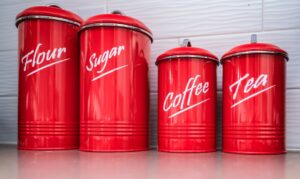Clean air is a fundamental component of a healthy environment, playing a crucial role in the well-being of individuals and communities alike. The quality of the air that people breathe directly impacts their physical health, mental clarity, and overall quality of life. Polluted air can lead to a myriad of health issues, including respiratory diseases, cardiovascular problems, and even cognitive decline.
In contrast, clean air promotes better lung function, enhances energy levels, and contributes to improved mental health. As such, ensuring that the air in homes, workplaces, and public spaces is free from pollutants is essential for fostering a healthier society. Moreover, clean air is not only vital for human health but also for the environment.
It supports the growth of plants and wildlife, contributing to biodiversity and ecosystem stability. When air quality deteriorates due to pollutants, it can lead to acid rain, which harms vegetation and aquatic life. Additionally, clean air is integral to combating climate change; it helps maintain the balance of greenhouse gases in the atmosphere.
Therefore, prioritizing clean air is not just a personal health issue but a collective responsibility that affects future generations.
Key Takeaways
- Clean air is essential for good health and well-being
- Clogged air filters can lead to reduced air quality and health issues
- Consequences of clogged air filters include decreased HVAC efficiency and increased energy costs
- Regularly checking and replacing air filters is crucial for maintaining clean air
- Different types of air filters are available, including fiberglass, pleated, and HEPA filters
Signs of Clogged Air Filters
Airflow Reduction and Inefficiency
One of the most noticeable indicators is a decrease in airflow from heating or cooling systems. When air filters become obstructed with dust, dirt, and other particles, they restrict the flow of air, making it difficult for HVAC systems to operate efficiently. Homeowners may notice that their heating or cooling units are running longer than usual or that certain rooms are not reaching the desired temperature. This inefficiency can lead to increased energy bills and unnecessary wear on the system.
Dust and Allergens in the Home
Another telltale sign of clogged air filters is the presence of dust and allergens in the home. If residents find themselves frequently sneezing, coughing, or experiencing allergy symptoms despite regular cleaning, it may be time to inspect the air filters. A dirty filter can allow dust, pollen, pet dander, and other irritants to circulate throughout the living space.
Visible Signs of a Dirty Filter
Additionally, visible dust accumulation on furniture and surfaces can indicate that the air filter is no longer effectively trapping particles. Recognizing these signs early can help prevent further complications related to indoor air quality.
Consequences of Clogged Air Filters

The consequences of neglecting clogged air filters can be far-reaching and detrimental to both health and home systems. One immediate effect is the strain placed on HVAC systems. When filters are clogged, the system must work harder to push air through, leading to increased energy consumption and higher utility bills.
Over time, this added strain can result in mechanical failures or breakdowns, necessitating costly repairs or replacements. In essence, what may seem like a minor maintenance issue can escalate into significant financial burdens. In addition to financial implications, clogged air filters can have serious health consequences for occupants.
Poor indoor air quality can exacerbate existing respiratory conditions such as asthma or chronic obstructive pulmonary disease (COPD). Furthermore, prolonged exposure to airborne pollutants can lead to new health issues over time. Children, the elderly, and individuals with compromised immune systems are particularly vulnerable to the effects of poor air quality.
Thus, maintaining clean air filters is not merely a matter of convenience; it is a critical aspect of safeguarding health and well-being.
How to Check and Replace Air Filters
| Step | Description |
|---|---|
| 1 | Open the hood of your car and locate the air filter housing. |
| 2 | Remove the housing cover and take out the old air filter. |
| 3 | Inspect the old air filter for dirt and debris. |
| 4 | If necessary, replace the old air filter with a new one. |
| 5 | Put the housing cover back on and close the hood of your car. |
Checking and replacing air filters is a straightforward process that homeowners can undertake to ensure their indoor air quality remains high. The first step involves locating the air filter within the HVAC system. This may vary depending on the type of system in use; some filters are easily accessible while others may require removing panels or covers.
Once located, individuals should visually inspect the filter for signs of dirt and debris accumulation. A filter that appears darkened or clogged indicates that it needs replacement. Replacing an air filter typically involves removing the old filter and inserting a new one in its place.
It is essential to ensure that the new filter is compatible with the specific HVAC system being used. Homeowners should pay attention to the size and type of filter required, as using an incorrect filter can lead to further complications. After installation, it is advisable to mark a calendar or set reminders for future checks and replacements, as regular maintenance is key to sustaining clean air.
Types of Air Filters
There are several types of air filters available on the market, each designed to meet different needs and preferences. One common type is the fiberglass filter, which is inexpensive and effective at capturing larger particles like dust and lint. However, these filters may not be as efficient at trapping smaller allergens or pollutants.
For those seeking better filtration capabilities, pleated filters are an excellent option; they have a larger surface area and can capture finer particles while still allowing for good airflow. Another popular choice is HEPA (High-Efficiency Particulate Air) filters, known for their superior ability to trap 99.97% of particles that are 0.3 microns or larger. These filters are particularly beneficial for individuals with allergies or respiratory issues as they significantly improve indoor air quality.
Additionally, there are activated carbon filters designed to absorb odors and volatile organic compounds (VOCs), making them ideal for households with pets or strong cooking smells. Understanding the various types of air filters available allows homeowners to make informed decisions based on their specific needs.
Tips for Maintaining Clean Air Filters

Maintaining clean air filters requires a proactive approach that includes regular inspections and timely replacements. One effective tip is to establish a routine check-up schedule based on usage patterns; for instance, filters may need to be checked more frequently during peak seasons when heating or cooling systems are in heavy use. Homeowners should also consider factors such as pet ownership or living in dusty environments, which may necessitate more frequent changes.
In addition to regular checks, keeping the surrounding area clean can help prolong the life of air filters. Vacuuming and dusting regularly can reduce the amount of debris that enters the HVAC system, thereby minimizing filter clogging. Furthermore, ensuring that vents and registers are unobstructed allows for better airflow and reduces strain on the system.
By implementing these simple maintenance tips, homeowners can enjoy cleaner air while extending the lifespan of their HVAC systems.
Benefits of Clean Air Filters
The benefits of maintaining clean air filters extend beyond just improved indoor air quality; they also contribute to overall health and comfort within a home. Clean filters help reduce allergens and irritants in the air, leading to fewer allergy symptoms and respiratory issues among occupants. This improvement in air quality can enhance sleep quality and boost productivity during waking hours, creating a more pleasant living environment.
Moreover, clean air filters contribute to energy efficiency within HVAC systems. When filters are free from obstructions, systems operate more efficiently, leading to lower energy consumption and reduced utility bills. This not only saves money but also lessens environmental impact by decreasing energy demand.
Ultimately, investing time in maintaining clean air filters yields significant returns in terms of health benefits and cost savings.
Professional Help for Air Filter Maintenance
While many homeowners can manage basic air filter maintenance on their own, there are instances when professional assistance may be beneficial. HVAC technicians possess specialized knowledge and tools that allow them to conduct thorough inspections and maintenance tasks beyond simple filter changes. They can identify underlying issues within the system that may contribute to poor air quality or inefficient operation.
Additionally, professionals can provide guidance on selecting the best type of filter for specific needs and offer advice on optimizing overall HVAC performance. Regular professional maintenance not only ensures that air filters are kept clean but also extends the lifespan of heating and cooling systems. By enlisting expert help when necessary, homeowners can enjoy peace of mind knowing that their indoor air quality is being managed effectively.
In conclusion, maintaining clean air filters is essential for promoting good health and ensuring efficient HVAC operation. By recognizing signs of clogged filters, understanding their consequences, and implementing regular maintenance practices—along with seeking professional help when needed—homeowners can significantly improve their indoor environment while safeguarding their well-being.
If you are dealing with clogged or dirty filters in your home, it may be affecting the air quality and efficiency of your HVAC system. To learn more about the importance of maintaining clean filters and how it can impact your home, check out this article on how data mining is transforming the healthcare industry. Just like in healthcare where data mining can help identify trends and patterns to improve patient outcomes, regularly changing your filters can help improve the overall performance of your HVAC system.
FAQs
What are clogged or dirty filters?
Clogged or dirty filters refer to air, water, or oil filters that have accumulated dirt, debris, or other contaminants, reducing their effectiveness in filtering out impurities.
What are the common signs of clogged or dirty filters?
Common signs of clogged or dirty filters include reduced airflow, decreased water pressure, decreased fuel efficiency, and increased engine wear.
How often should filters be checked and replaced?
The frequency of filter checks and replacements varies depending on the type of filter and its usage. It is generally recommended to check and replace air filters every 12,000 to 15,000 miles, water filters every 6 months, and oil filters with every oil change.
What are the potential consequences of not replacing clogged or dirty filters?
Not replacing clogged or dirty filters can lead to decreased system efficiency, increased energy consumption, decreased equipment lifespan, and potential damage to the system or equipment.
How can clogged or dirty filters be prevented?
Clogged or dirty filters can be prevented by following the manufacturer’s recommended maintenance schedule, regularly checking and replacing filters, and ensuring proper cleaning and maintenance of the filtration system.






